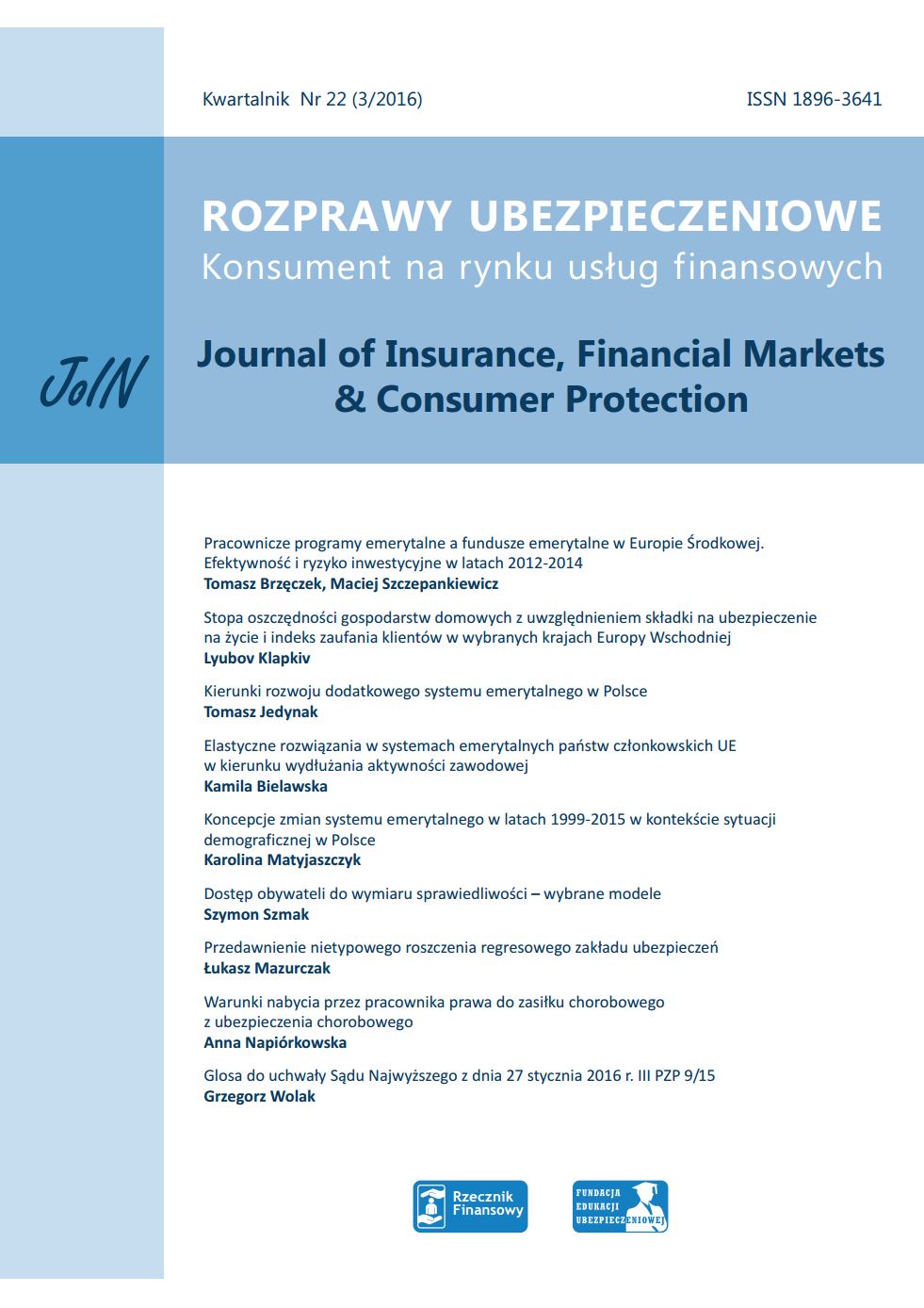Glosa do uchwały Sądu Najwyższego z dnia 27 stycznia 2016 r. III PZP 9/15, OSNAPiUS 2016 nr 8, poz. 100
Gloss to the Resolution of the Supreme Court of 27 January 2016, III PZP 9/15, OSNAPiUS (8)2016, item 100
Author(s): Grzegorz WolakSubject(s): Economy, Constitutional Law
Published by: Rzecznik Finansowy / Fundacja Edukacji Ubezpieczeniowej
Keywords: wypowiedzenie umowy o pracę; pracownik w wieku przedemerytalnym; renta z tytułu całkowitej niezdolności do pracy; szczególna ochrona pracownika przed wypowiedzeniem; równość wobec prawa
Summary/Abstract: W glosie do uchwały z dnia 27 stycznia 2016 r., III PZP 9/15, OSNAPiUS 2016 nr 8, poz. 100, autor wyraził aprobatę dla poglądu Sądu Najwyższego o tym, że przepis art. 40 k.p. wyłącza stosowanie zakazu wypowiedzenia umowy o pracę, o którym mowa w art. 39 k.p., niezależnie od tego, czy uzyskanie przez pracownika prawa do renty z tytułu całkowitej niezdolności do pracy nastąpiło przed okresem ochronnym, czy też w jego trakcie. Za poglądem tym – zdaniem autora – przemawiają argumenty wykładni celowościowej, wzgląd na konstytucyjną równość obywateli wobec prawa (art. 32 Konstytucji RP) oraz charakter wypowiedzenia umowy o pracę, które jest zwykłym sposobem rozwiązania umowy o pracę przez obie strony. Tym samym pożądane jest ścisłe interpretowanie przepisów, które ustanawiają wyjątki od tej zasady, a takim jest art. 39 k.p. w zw. z art. 40 k.p. In his gloss to the resolution dated January 27, 2016, III PZP 9/15, the author expressed his approval to the opinion of the Supreme Court that the provision of Article 40 of the Labour Code rules out the application of the prohibition of termination of employment contract, referred to in Article 39 of the Labour Code, regardless of whether the right to disability pension for incapacity for work was granted before or after the period of protection. This opinion – as the author attempts to justify – is based on the argument of purposive construction, consideration for the citizens’ equality before the law (Article 32 of the Constitution of Poland) and the nature of termination of a contract of employment, which is the ordinary method of dissolution of the labour relation by both parties. Therefore, a strict interpretation of the relevant regulations is needed, in particular those that allow exceptions to this rule – and this is the case with Article 39 of the Labour Code in conjunction with Article 40 of the same code.
Journal: Rozprawy Ubezpieczeniowe. Konsument na rynku usług finansowych
- Issue Year: 4/2016
- Issue No: 22
- Page Range: 115-127
- Page Count: 13
- Language: English, Polish

